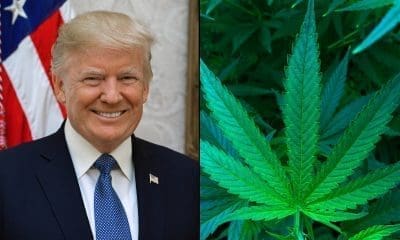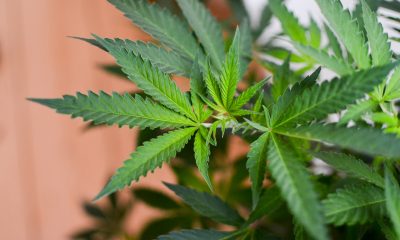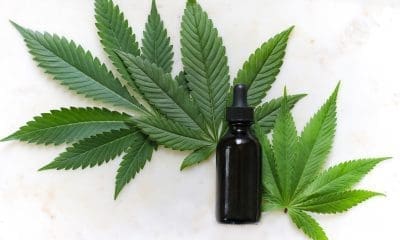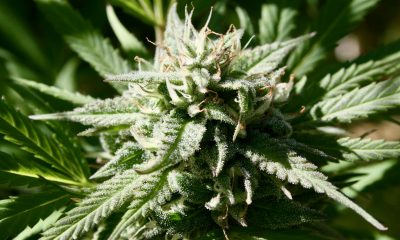Politics
State Department Says Marijuana Reform Helps Address Religious Discrimination In Other Countries, While Ignoring U.S. Policy
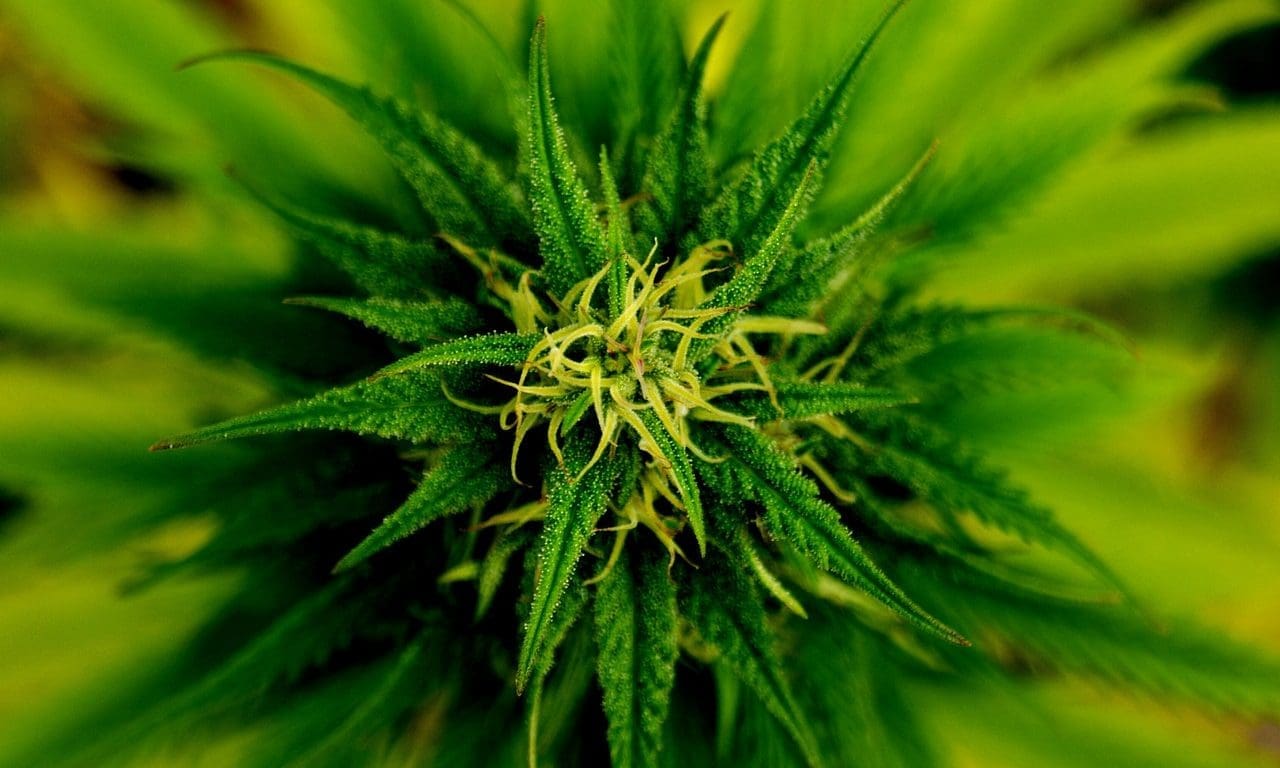
A new U.S. State Department report on religious discrimination across the world looks at how marijuana laws in various countries either respect or violate the rights of certain believers to practice their faiths.
But although the federal government is again making it a point in the latest edition of the annual report to outline ongoing cannabis-related discrimination in some foreign countries, the new 2021 Report on International Religious Freedom continues to decline to recognize ongoing marijuana prohibition laws that remain on the books in the U.S.
“The report is designed to spotlight examples of government and societal action that typify and illuminate issues reported in each country,” a description of the report says. “Specific inclusions or omissions should not be interpreted as a signal that a particular case is of greater or lesser importance to the U.S. government, or that a case is the only available example. Rather, the goal is to shed light on the nature, scope, and severity of actions impacting religious freedom through illustrative examples.”
The latest State Department document, published early this month, discusses cannabis policies in about a dozen nations and how they intersect with religious liberties, including by noting that a growing movement toward legalization and decriminalization is helping to reduce discrimination that has been prevalent in the past.
Here’s a breakdown of what the report found:
Antigua and Barbuda
A recent policy decriminalizing cannabis “recognizes the government’s responsibility to uphold the religious rights of persons of the Hindu and Rastafarian faiths,” the State Department said.
“The law allows these persons to apply for a special religious license to cultivate the plant within their private dwelling, use the plant for religious purposes within their private dwelling or within their approved place of worship, and transport the plant between their private dwelling and approved place of worship,” it continues. “The special religious license, however, does not permit any commercial or financial transaction involving any part of the cannabis plant.”
Bahamas
Rastafarians in the Bahamas “continued to state the government violated their constitutional right to religious freedom by prohibiting the legal use of marijuana in ceremonial rituals and detaining community members for using it,” according to the report.
“The previous government had advanced, but not passed, legislation to permit limited use of marijuana, including for religious purposes,” it says. “The new administration of Prime Minister Philip Davis had not stated by year’s end whether it would reintroduce this or a similar bill. In October the government began reviewing expungement applications from individuals convicted of possession.”
Barbados
Rastafarian in Barbados fought hard for reform and successfully helped usher in an era of decriminalization that makes possession of up to 14 grams of cannabis a non-criminal offense, the U.S. government noted.
“In March, with the stated intention of making better use of police and court resources, among other reasons, the government decriminalized the personal possession and use of up to 14 grams of marijuana, a change in the law that the Rastafarian community supported,” the State Department said. “According to media, Attorney General Dale Marshall said that cannabis possession of 14 grams or fewer would result in a fine rather than criminal charges.”
Belize
The report on Belize cites significant pushback to efforts to legalize marijuana in the country, particularly from the National Evangelical Association of Belize (NEAB). The organization characterized the reform proposal as “shockingly offensive.”
The Belize Council of Churches (BCC) also resisted the policy change. NEAB, for its part, said that the push for legalization was financially motivated.
“On July 2, the government introduced a bill to amend the Misuse of Drugs Act, which would authorize the legalization of marijuana,” the report says. “The bill sought to establish a provision for the licensing and registration of enterprises operating in the cannabis industry that would allow persons to cultivate, process, distribute, and deliver cannabis for adult use.”
“In October, the NEAB stated it was ‘deeply concerned’ that government involvement in the marijuana business meant the official promotion of marijuana use and development. NEAB officials said they had been voicing their concerns to the Minister of Home Affairs and New Growth Industries Kareem Musa but were still waiting for a formal meeting. The BCC also expressed concern that the government did not “seek and consider input on important moral and societal issues.”
“The BCC said that legalizing the cultivation and distribution of marijuana would encourage widespread use of the drug, causing effects on the human body, particularly young people, and was ‘not a path civil society should choose to take,'” the department said. “In response, Minister Musa said the bill was intended to regulate an already existing industry and, after meeting with the BCC, he said that requirements in the law would prevent the easy accessibility of marijuana to minors. At year’s end, the bill remained pending before parliament.”
Dominica
In Dominica, “Rastafarians continued to press the government to legalize marijuana use,” the report says.
“In October 2020, parliament decriminalized the possession of up to 28 grams of marijuana to individuals 18 years and above for personal religious use,” it notes. “Representatives of the Rastafarian community said authorities did not enforce the law against using marijuana when the community used it in its religious rites.”
Guyana
The government of Guyana put forward legislation last year to “remove custodial sentences for the possession of fewer than 30 grams of cannabis and remove fines for using cannabis.” But after being transmitted to a select legislative committee, it has so far stalled.
“According to media, representatives of the Rastafarian community continued to state a law criminalizing the possession of 15 grams or more of marijuana infringed on their religious practices,” the report says, citing a Rastafarian leader who said that “to deny me the holy herb for my sacrament is to deny me my human rights.”
“The Guyana Rastafari Council continued to petition the government to legalize the use of small amounts of marijuana for religious purposes, holding regular protests in front of the office of the Attorney General,” the State Department said. “In October, the general secretary of the council told media that authorities had conducted raids on their places of worship to seize marijuana.”
“A Rastafarian member of the IROG said he did not believe that the measures taken by the government to introduce but not pass legislation were sufficient and asked for international support to lobby the government,” it continued.
Jamaica
One of the countries most commonly associated with cannabis, Jamaica still struggles with restrictive policies, the report notes.
“The [Jamaica Defense Force] generally continued to refuse acceptance of Rastafarians into its ranks,” the State Department said. “The JDF previously noted it did not discriminate based on religion or denomination, but it stated that the force’s strict codes of conduct regarding hair length and the prohibition of marijuana use among its members were the obstacles to Rastafarian participation in the force.”
However, “Rastafarians continued to report wider societal acceptance, despite continued negative stereotyping and stigma associated with their wearing locs and smoking marijuana.”
Malawi
“Rastafarians continued to object to laws making the use and possession of cannabis a criminal offense in the country, stating its use was a part of their religious doctrine,” the report says.
Saint Kitts and Nevis
The State Department report says that the law of Saint Kitts and Nevis “permits the private use of marijuana away from public places, including for religious activities, as well as in registered places of worship for members of the Rastafarian faith.”
Saint Lucia
In Saint Lucia, Rastafarian representatives have said that the government’s move to decriminalize possession of up to 30 grams of marijuana represented “a welcome step.” However, “Rastafarians called for further action, such as legalizing cannabis production or expunging criminal records of those previously convicted.”
The report cites comments from Prime Minister Pierre, who apologized for the past policy of criminalization and said that the modest policy change “is the first step of many as we seek to create a medicinal and recreational cannabis industry and decriminalize the use of cannabis.”
“Rastafarians in Saint Lucia will be able to practice their religion without fear of flouting our country’s law,” the prime minister said.
The State Department report noted that “some Rastafarians stated the law’s focus on possession was illogical because production remained illegal, while other Rastafarian community members stressed the potential economic gains from legal, large-scale cannabis production.”
Saint Vincent and the Grenadines
“Rastafarians said they were increasingly accepted in society, and overall, the country’s citizens were becoming more tolerant of their way of life, including in their use of cannabis,” the report notes. “Possession and use of two ounces or fewer of marijuana is permitted, including for religious sacraments.”
“In March, the government publicly stated that marijuana use and possession of 56 grams (two ounces) or fewer was now decriminalized,” it continued. “During the year, the Medical Cannabis Authority reported it granted some licenses to ‘traditional cultivators,’ including members of the Rastafarian community.”
“Observers said there was widespread and increasing use of cannabis on the country’s main island, which they believed suggested broader societal acceptance of its use.”
Trinidad and Tobago
Rastafarians in Trinidad and Tobago say that “the government continued to prohibit the production, sale, and consumption of marijuana, although they did not report any arrests or fines of their members during the year.”
“Rastafarians said this prohibition under the country’s law was an infringement on their religious freedom to access cannabis, which they said was a core component of their religious practices,” the report says.
United States
The State Department report again does not discuss domestic cannabis policy or its discriminatory effects on marijuana consumers, even as U.S. courts have continually rejected cases arguing that religious exceptions should be made to the country’s cannabis criminalization laws that result in hundreds of thousands of arrests every year.
New Details On Congressional Marijuana Omnibus Bill Emerge As Lawmakers Work For 60 Senate Votes




